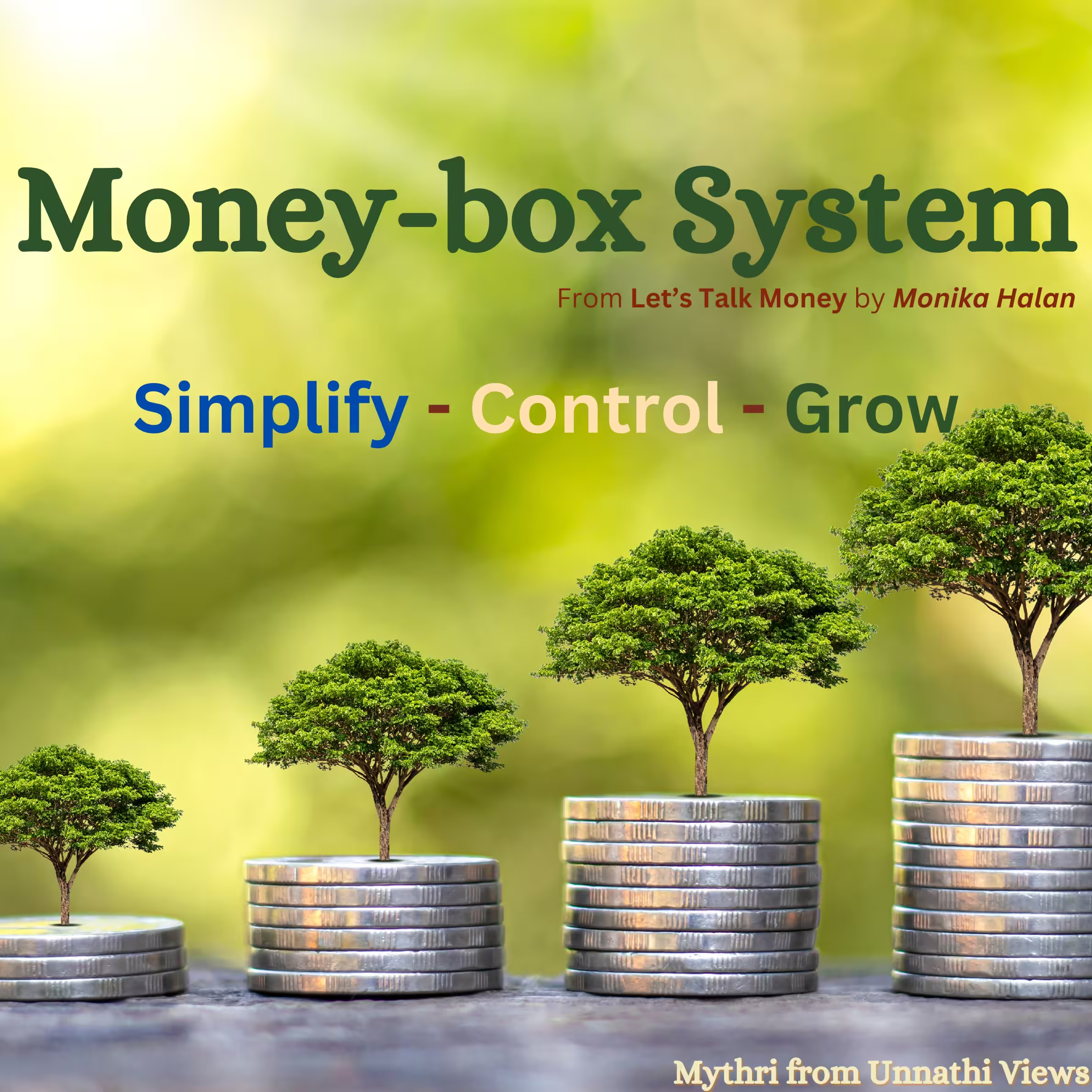Namo Namaha, fellow readers!
You ever say something casually in conversation and then stop mid-sentence because—wait—was that an insight?
I had one of those recently while chatting with a friend about, of all things, housework! I was describing how I love having a tidy space. My books are aligned, drawers look like they came out of a Pinterest board (who am I kidding? But hey, I always find what I’m looking for—that counts, doesn’t it?), and my digital files are cleaner than my thoughts (and trust me, you don’t want to peek inside my mind—it’s scary!). But the moment I have to clean up after someone else? That inner Zen monk just dissolves into thin air. The “disciplined, self-motivated woman” clocks out early and refuses to work overtime.
And that’s when it hit me: this wasn’t laziness. It was resistance. A deep inner rebellion to picking up someone else’s slack and saying “I am done picking up after you!“. And that’s not just a personal gripe. It’s a national one.
Clean Homes, Chaotic Commons: What’s Really Going On?
We Indians are famously obsessed with cleanliness—in theory. We wash ourselves thoroughly (often twice a day; tropical climate is not a joke, guys!), we don’t mix cooking utensils for veg and non-veg, and we can conduct a five-act opera about how food must never be contaminated. Our idea of shaucha isn’t just about cleanliness; it’s a deeply cultural, almost spiritual discipline.
But the moment we step into shared spaces, it’s like all bets are off. Litter on roads, overflowing garbage, clogged drains, public toilets you wouldn’t wish on your enemies.
A country that once boasted advanced sewer systems and well-planned towns now has to be urged—by its Prime Minister, no less—to not defecate in the open or chuck garbage onto the street. And even then, the Swachh Bharat Mission, for all its vision, floundered. Not because it was a bad idea. Because there was no collective buy-in. No shared sense of why it mattered.
And this is where things get real. Because if you think it’s just about “Indians are dirty,” you’re missing the point and need I say adding to the deviously racist stereotype? 
We’re not incapable of cleanliness. We’re unwilling to bear shared accountability. And that shift tells the whole story.
Once Upon a Time, We All Knew the Rules
There was a time—and it wasn’t mythical, just older than our modern memory—when Indians (read: Hindus, primarily) operated on a dual framework: svadharma and sādhāraṇa dharma.
Dharma, for context, doesn’t mean “duty” in the reductive, corporate-job-description way. It’s a non-translatable Sanskrit concept encompassing ethics, purpose, order, identity, behavior, and interdependence. If you’re into code, think of dharma as a class—not a single function, but a structure with multiple methods, variables, and complex internal logic. It handles inputs and outputs, state and behavior, all in one.
For this post, let’s think of it as:
- What we ought to do.
- How we ought to behave.
- How we present ourselves in personal and public life.
 Svadharma was your personal path—your role in the cosmic and societal jigsaw. Sādhāraṇa dharma was the baseline of mutual expectations and norms that held society together. And the magic? Everyone understood these roles weren’t arbitrary. They were communal defaults. You could fall back on them. You had clarity. And if you ever got confused, someone around you would nudge you back into sync.
Svadharma was your personal path—your role in the cosmic and societal jigsaw. Sādhāraṇa dharma was the baseline of mutual expectations and norms that held society together. And the magic? Everyone understood these roles weren’t arbitrary. They were communal defaults. You could fall back on them. You had clarity. And if you ever got confused, someone around you would nudge you back into sync.
But that moat is gone now. There is no fallback. No shared playbook. Everyone is writing their own manual and hoping it aligns with others. Unsurprisingly, it doesn’t. So we do what makes the most sense: look out for ourselves.
And that explains so much about why nobody wants to pick up after anyone else—in homes, in offices, in neighborhoods. It’s not apathy. It’s exhaustion. It’s that classic survival response to broken systems: retreat, conserve, endure. And we seem to have been enduring for thousands of years.
The Disappearing Commons Starts at Home
As all things do, it starts from the microcosm. The microcosm of society is the home, and the soul of the home is often said to be the woman. It’s not for nothing we say “amma veedu” or “maa ka ghar.“
Modern Indian women, especially those who’ve gained financial independence, aren’t just tired. They’re bone-weary. Not because work is hard (it is, but that’s not new). It’s because they carry both individual responsibility (svadharma) and collective upkeep (sādhāraṇa dharma) inside the family—with no one to truly share the load.
They’re earning, yes. But they’re also expected to run the home like clockwork—cooking, doing laundry, picking up after wet towels and stinky socks, scheduling doctor appointments, organizing birthdays, remembering school events, being the emotional thermostat, the project manager, the default adult. They track their goals and everyone else’s too, while others coast along focusing solely on their own. Where’s the equity in that?
And opting out? Not an option. Not without guilt. Not without judgment. Not without that classic line: “But your mother never complained!” Sure, but your father wasn’t cruising in AC sedans, was he? And you didn’t stick to that legacy!
Meanwhile, everyone else in the household enjoys flexibility. The man says, “I have a meeting!” The teen vanishes with his earbuds on. The toddler throws a fit. But the woman? She picks up the pieces—literally and emotionally. And if she resists? She’s hormonal, difficult, or simply not trying hard enough. If she’s a homemaker, she gets the bonus barb: “What do you even do all day?“
That, dear reader, is what lack of agency looks like. Agency means the capacity of individuals to have the power and resources to fulfill their potential. When you don’t have agency, your life is not your own. Your choices are filtered through guilt, expectation, and endless invisible work.
I mean the real deal: the freedom to make choices without everything collapsing around you. The freedom to do less and not feel punished. The freedom to matter without over-functioning.
So when women opt out of traditional roles, it isn’t rebellion. It’s common sense. If the job comes with thankless hours, no relief, and zero recognition, who in their right mind would apply?
The Public Mirror: From Ancient Sanitation to Modern Chaos
Let’s connect the dots. If the burden imbalance in homes leaves one group perpetually depleted, the same logic extends to civic life.
There’s this idea that Indians have always been messy, uncouth, and unhygienic. But look at pre-colonial and even early colonial photographs of Indian towns. Streets were clean. Drainage systems existed. Wells were maintained. There was method in the madness. Hygiene wasn’t a Western import—it was deeply Indian.
The problem isn’t that we’re inherently messy by nature. The problem is that we’ve stopped believing the commons are worth saving.
And here’s the brutal truth: the svadharma-sādhāraṇa dharma model only works when everyone plays by the rules. The moment someone slacks off and dumps their garbage on the roadside at 5 AM, trusting nobody will see them, the contract collapses. When a government office harasses you and the installed CCTV cameras are either mysteriously broken or pointed away from the action, faith dies a quiet death.
It’s not that Indians can’t follow rules. It’s that the rules are either selectively enforced or systematically mocked. You see a bureaucrat demanding bribes from a salaried tech worker who’s already neck-deep in EMIs. You hear of a flyover collapsing, and no one being held responsible. You walk through roads that resemble obstacle courses designed by cruel pranksters—our very own “Takeshi’s Castle” minus the cash prize. We clear hurdles, dodge potholes, leap over dog poop, and land straight into apathy!
We’re not indifferent. We’re tired. Tired of carrying everyone else’s load. Tired of systems that fail the rule-followers and reward the free-riders.
So, What Are We Really Asking For?
No, I’m not advocating for a return to feudal kitchens or caste-coded societies. We’re not going back. Nor should we.
But we do need a new, enforceable, ethical social contract—one that’s modern in tools but ancient in spirit. One where collective responsibilities are clearly defined, visibly enforced, and equally applied. Where systems work without needing jugaad. Where surveillance isn’t just symbolic. Where breaking the rules actually has consequences. Sheesh—times when I really wish Anniyan was a real human!
In homes, this means real sharing. Not outsourcing. Not temporary relief. But definitive ownership. A model where women aren’t the default fail-safe for everything.
In society, this means clarity, consistency, and courage. Put up the CCTV. Use it. Stop the “this camera doesn’t work” charade. Catch the garbage dumper. Fine the builder who cuts corners. Hold officials accountable not just in press releases but in actual courtrooms.
That’s how trust is rebuilt. That’s how agency is returned. That’s how emotional and physical shaucha can return—not just in bathrooms and bedrooms, but in bylaws and bylanes.
So, Yes, I’m Still Not Going to Clean Up After You
But I’ll gladly clean with you.
Because that’s the difference between obligation and ownership. Between burnout and contribution. Between silence and solidarity and, wait for it… between apathy and agency! (Phew, why do I feel like I gave a Rajni-level punch dialogue?)
If you read this and felt seen, or had your own lightbulb moment, talk to me. Let’s unpack it together. Share your thoughts in the comments, message me, debate me, or just reflect silently if that’s more your vibe.
The shaucha revolution starts small. But it starts.
Let’s not wait for another campaign. Let’s start one of our own.
Until next time. Stay happy, healthy, and blessed. Om Shanti. 🙏




